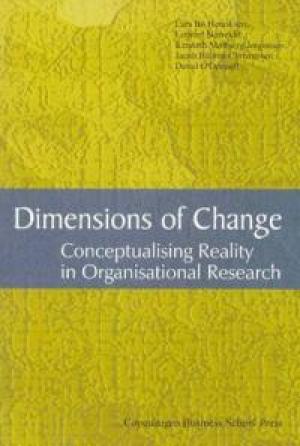Since Heraclitus change has baffled, perplexed and bemused. Organisational change is no exception; such change is an empirical fact but the extant conventional literature largely fails to enhance our understanding of this phenomenon.
Conventional theories, models and methods do not possess the means of facilitating real understanding for either practitioners or researchers.
Grounded in a theory of reality, based on a particular conceptualising method, and illustrated with reference to real case studies, the authors explicate how to do both theory and method on organisational change in a novel, concise and very readable way.
Reality is constructed by integrating four key dimensions: facts, logic, values and communication; these provide the material for the introductory chapters with the overall understanding of method emerging as one works through the remaining chapters.
Insights from mainly continental philosophy and social science are used to illustrate the key arguments throughout.
Conventional approaches are usually concerned with definitions and outcomes; in contrast this book strongly emphasises the change process itself, the discourse of change with respect to both real actors and observants, and how new realities are constructed.
The book admirably fills the gap between the what is of conventional theory and how to of a much more pragmatic critically modernist approach to both studying and doing organisational change.



